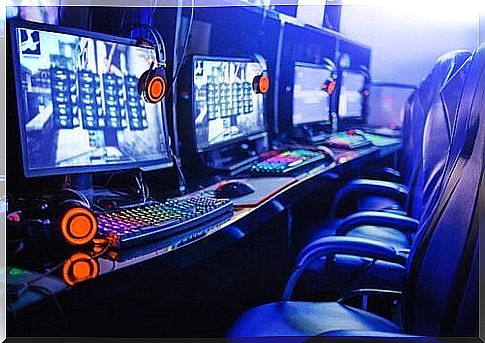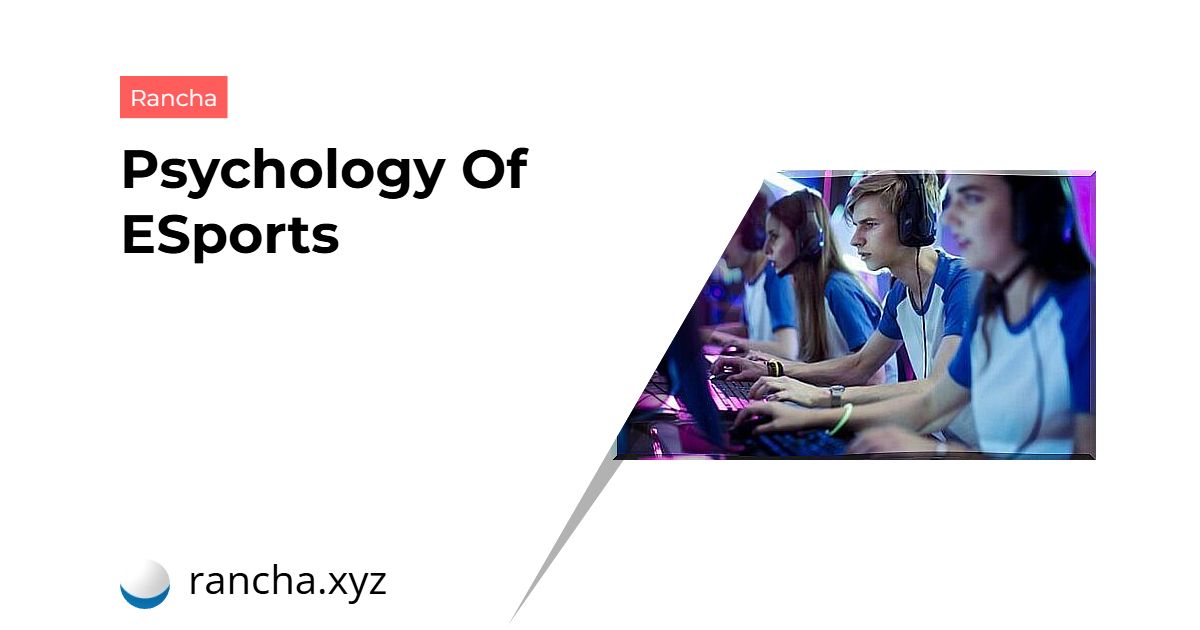The psychology of eSports is a concept that we will see more and more among us. Year after year, electronic sports are gaining ground. That is why it is already common to talk about them in newspapers and on television. International tournaments have thousands of followers, presenting themselves, in turn, as a fantastic advertising showcase.
Within this popular phenomenon, we will focus on two issues. What skills and behaviors does a good player need to have? Why are these games so attractive to new generations?
Let’s review the main features of this phenomenon through psychology. The evolution of technology is so great that nowadays video games can pose a problem, but they can also be a very valuable tool in an intervention.
eSports: the pinnacle of video games
eSports is not a phenomenon that escapes globalization. Video games had their consumer audience expanded.
Many parents have never stopped playing, many children are starting to play now, and the middle generations increase that generational leap. These days, it’s hard to imagine that it all started in the 1970s with a few people getting together to play Pac-Man or Spacewar .

The Internet Revolution
The ability to connect to the Internet and play games online with other users revolutionized the market in the 1990s. Major producers like Nintendo or Sony found themselves involved in a constant struggle to dominate sales.
At that time, the need to understand the demands of users also emerged. It was then that the foundations of psychology in eSports were established.
The professionalization of eSports
The heyday is such that many players make a living from it. Nowadays, competitions have acquired international relevance. The huge tournaments, which started in Japan and South Korea, spread all over the world.
The market and sponsors allow many people to engage in this activity as a job. We can find different categories of competition:
- Real-time strategies: They stand out for being competitions based on real sports. One example is the FIFA football game championships.
- First-person shooters: War simulators and weapon missions. A clear example is the famous game “Counter Strike”.
- Online multiplayer battle arenas: This is the most popular mode. In this type of game, the characters fight in a scenario full of fanciful elements. One of the clearest examples is League of Legends .
Why is eSports so popular?
Following gameplays (videos of people playing) is very popular on platforms like Youtube, standing out among new generations. Why is it so cool to see someone else play without participating? Psychology proposes the following reasons:
- Aesthetics. The art of playing well. Professional players have an attractive and unique style of play.
- Drama. Watching someone else play creates expectations. This feeling is heightened when there is competition between two or more players.
- Escape. Like any other means of entertainment, this modality provides distraction.
- Feeling of belonging. Just as football lovers identify themselves as fanatics, eSports followers identify themselves as “gamers”. That is, eSports followers also identify with a player or a team.
The psychology of eSports
Video games are currently used for various reasons. From pilot training to interventions in cases of ADHD, as well as education, being a tool for learning.
Several surveys claim that video games enhance cognitive skills. However, its increasing complexity also requires these skills.
Main Psychological Skills in eSports
The psychological perspective of eSports indicates that there are several “requirements” to be a good player. Cognitive skills are understood as high-demand brain executive functions. Let’s see some of the most used in eSports.
- Attention: A high level of continuous attention is required. Players must pay attention to every detail on the screen, in matches that can last several hours.
- Planning: it is a fundamental skill, as strategy is one of the pillars of eSports . It requires a great capacity to integrate the greatest amount of stimuli and elaborate an adequate response.
- Working memory: this skill consists of using all cognitive resources in a task. The connection between current stimuli and those stored in memory is essential.
- Inhibition: quality that refers to the ability to control impulsiveness and restrict attention to a goal. A crucial aspect of the game is to eliminate any distractions that may arise.

What are your promoters looking for?
The high demands of users and the evolution of technological resources produce constant changes in eSports. These changes do not escape psychological analysis and currently follow a determined direction. This is how both players and spectators value certain characteristics.
- Immersion. The greater the feeling of being “in” the game, the more attractive it will be.
- Competitiveness. Producers tend to offer better scenarios and competition modalities.
- Story. Games often have a complex story behind them, which fuels myth and user immersion.
- Realism and fantasy. Graphics are a very important aspect that bring a certain degree of reality to these games. Likewise, realism is complemented with stories and scenarios full of fantasy, arousing curiosity.
An industry that is not without its problems
eSports organizations are struggling with issues that we often see in other sports and that currently threaten to infect this sport. Among them, we find the proliferation of medicines and drugs to maintain attention or improve players’ performance. Other problems are the gender stereotypes that surround the industry and the possible addictions that children can develop.
In conclusion, psychology is a discipline that is increasingly linked to eSports. Likewise, it reveals the characteristics that explain the phenomenon’s popularity. Some researchers debate the sportiness of eSports. However, the series of cognitive requirements necessary to be a professional in this area is undeniable. Furthermore, the psychological study of this field helps to detect complications and possible therapeutic applications.
 rancha.xyz Be free to choose their own route to self-knowledge, health and balance of body and soul.
rancha.xyz Be free to choose their own route to self-knowledge, health and balance of body and soul.




